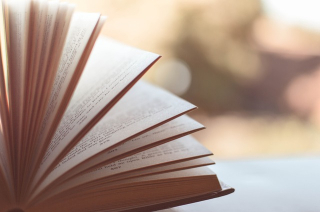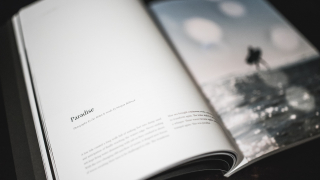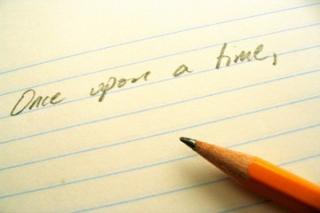Rob Bignell's Blog, page 240
August 30, 2017
Which one? Wellbeing, well-being, well being
How you  spell this word depends on where you live in the English-speaking world.
spell this word depends on where you live in the English-speaking world.
Well-being as a hyphenated word is the preferred form in the United States and Canada.
Wellbeing as one word with no hyphens is the standard spelling in the United Kingdom, Australia and other English-speaking countries outside of North America.
The word never should be spelled as two words without a hyphen; well being doesn���t make sense as it isn���t two nouns stuck together to form a new object (and hence a new word), as is the case with ice cream.
Be forewarned that as the less preferred form of each word often appears no matter where you live, sometimes spell checks won���t catch the error.
Professional Book Editor: Having your novel, short story or nonfiction manuscript proofread or edited before submitting it can prove invaluable. In an economic climate where you face heavy competition, your writing needs a second eye to give you the edge. I can provide that second eye.
<a href="http://ws-na.amazon-adsystem.com/widg... Widgets</a>
Related articles
 Five Great Quotations about the Writing Process
Five Great Quotations about the Writing Process Writing Inspiration: Seek another's advice
Writing Inspiration: Seek another's advice Make tables readable in your self-published book
Make tables readable in your self-published book
August 29, 2017
5 Science Fiction Writing Prompts
Science  fiction stories typically revolve around a novum, a scientifically plausible concept that becomes ���reality��� in the tale. The novum might be an mechanical device like robot servants, artificial intelligence, or a space station with artificial gravity; it also can be hypothetical idea such as ���The Earth is a scientific experiment run by aliens to determine the meaning of life��� or ���The government outlaws books.��� The author then asks ���What if?��� exploring how our world would change if this novum actually existed or were true.
fiction stories typically revolve around a novum, a scientifically plausible concept that becomes ���reality��� in the tale. The novum might be an mechanical device like robot servants, artificial intelligence, or a space station with artificial gravity; it also can be hypothetical idea such as ���The Earth is a scientific experiment run by aliens to determine the meaning of life��� or ���The government outlaws books.��� The author then asks ���What if?��� exploring how our world would change if this novum actually existed or were true.
Among the problems of many novice science fiction writers is instead of a new novum, they rely on used furniture ��� that is, they borrow novums from popular SF stories. After all, how many novels have you read that use starships exploring the galaxy for the Earth-based Federation? Barely changing names to appear as if you are not appropriating ��� a starcraft seeking M-class worlds for the Earth-centered Alliance ��� still doesn���t cut it as original or fully using the potential that science fiction offers to examine our culture or humanity.
To help SF writers, here are some novums of potential near-future inventions from which stories could be built:
Dream sharing
What if devices in our pillows could monitor our brain���s electrical activity while we sleep? This would allow us to view our own dreams when awake; linking monitors even would let two (or more) people experience one another���s dreams at the same time.
Electronic makeup
What if you could place a thin plastic membrane on your forearm (or anywhere else on your body) that can link to the Internet? In addition to providing information, you could use the membrane to change your appearance at any time; football fans can wear tiger stripes on their faces, the elderly can ���eliminate��� wrinkles, and those dissatisfied with their skin complexion can change its tone.
Polymer gel muscles
What if emergency personnel, the military, and athletes could wear lightweight exoskeletons that can make them five times stronger than their regular muscles? In addition to running faster and jumping higher, the gel could be bulletproof.
Smart contact lenses
What if you could wear wifi contact lenses that project high resolution images directly onto your retina? They would allow you to know the time, read a map, or access online information at any time, even when your eyes were closed.
Smart skin
What if you could place tiny cell-sized electronic beads into your skin that allowed your body to experience tactile sensations during a computer game or during emergency services/military training? In addition, these sensations can be recorded and then replayed so that you could re-experience your time on the beach or mind-blowing sex.
Professional Book Editor: Having your novel, short story or nonfiction manuscript proofread or edited before submitting it can prove invaluable. In an economic climate where you face heavy competition, your writing needs a second eye to give you the edge. I can provide that second eye.
Amazon.com Widgets
August 28, 2017
Always start your story in the middle
An old  but essential writing adage is ���Start your story in the middle.��� That is, rather than give background information about how the story���s main conflict came to be, instead start it by dropping the reader right into the hornet���s nest.
but essential writing adage is ���Start your story in the middle.��� That is, rather than give background information about how the story���s main conflict came to be, instead start it by dropping the reader right into the hornet���s nest.
This technique is called in medias res, a Latin term for ���in the middle.��� It dispenses with the story���s background and start with the action already underway (or ���in the middle��� of the story). An excellent example of this is Homer���s ���The Iliad,��� which starts in the waning days of the Greek war with the Trojans rather than covering the 10-year siege before the final battle. This helps focus the story���s plot on a character resolving one significant central problem.
Some writers consider this approach disorienting and so avoid it. While that response may be true for some young readers, almost anyone who���s at least a teenager has read or seen acted out so many stories that they won���t be confused. If anything, the uncertainty will make them read on to find out what���s happening.
For example, starting a story in which a naval ship comes upon a sister craft that has mysteriously been attacked is more interesting than starting with exposition about the search for it. Yes, the ���story��� technically began with receiving orders from the admiralty to look for the ship, but rarely does anything that���s particularly interesting occur during the search. Given this, starting the story at the moment that the crew sees the listing ship can be emotionally evocative and set in motion a lot of action, conflict and suspense as the harrowing rescue gets underway. This likely is more important in a short story than a novel.
Readers will learn what is going on, who the main characters are, and the setting as this action unfolds. Not only is that a more economical way to deliver what otherwise would be considered exposition, it���s also more interesting.
Professional Book Editor: Having your novel, short story or nonfiction manuscript proofread or edited before submitting it can prove invaluable. In an economic climate where you face heavy competition, your writing needs a second eye to give you the edge. I can provide that second eye.
Amazon.com Widgets
August 27, 2017
Five Great Quotations about Story Ideas
������I make  them up,��� I tell them. ���Out of my head.������ - Neil Gaiman
them up,��� I tell them. ���Out of my head.������ - Neil Gaiman
���Ideas aren���t magical; the only tricky part is holding on to one long enough to get it written down.��� - Lynn Abbey
���Write hard and clear about what hurts.��� - Ernest Hemingway
���Some moments are nice, some are nicer, some are even worth writing about.��� - Charles Bukowski
���There are only two things to write about: life and death.��� - Edward Albee
Professional Book Editor: Having your novel, short story or nonfiction manuscript proofread or edited before submitting it can prove invaluable. In an economic climate where you face heavy competition, your writing needs a second eye to give you the edge. I can provide that second eye.
Amazon.com Widgets
August 26, 2017
Words of Encouragement for Writers

��� Ask key questions
��� Set steps for your goal
��� Approach story sideways
��� Be okay with imperfection
��� What will be your legacy?
��� BONUS: ���We tell ourselves stories in order to live.��� - Joan Didion
Professional Book Editor: Having your novel, short story or nonfiction manuscript proofread or edited before submitting it can prove invaluable. In an economic climate where you face heavy competition, your writing needs a second eye to give you the edge. I can provide that second eye.
<A HREF="http://ws-na.amazon-adsystem.com/widg... Widgets</A>
Related articles
 Five Great Quotations about the Writing Process
Five Great Quotations about the Writing Process Writing Inspiration: Seek another's advice
Writing Inspiration: Seek another's advice Make tables readable in your self-published book
Make tables readable in your self-published book
August 25, 2017
3 Tips on Getting Your Book Published

��� Follow Heinlein���s Rules to land big book deal
��� How to find a literary agent for your book
��� Write winning query letter to editors, agents
��� BONUS: Submitting do���s and don���ts for magazines
��� DOUBLE BONUS: ���You have to know how to accept rejection and reject acceptance.��� ��� Ray Bradbury
Professional Book Editor: Having your novel, short story or nonfiction manuscript proofread or edited before submitting it can prove invaluable. In an economic climate where you face heavy competition, your writing needs a second eye to give you the edge. I can provide that second eye.
Amazon.com Widgets
August 24, 2017
8 Simple Tips for Self-Editing Your Writing

��� Watch for consistency errors in your story
��� Six useful tips for self-editing your book
��� Avoid using ALL CAPS in your writing
��� Don���t smother writing with your red pen
��� What to look for when revising your manuscript
��� Fix scene by employing black box analysis
��� Learn some literary devices
��� Read for a solution
��� BONUS: "It is perfectly okay to write garbage ��� as long as you edit brilliantly." ��� C. J. Cherryh
Professional Book Editor: Having your novel, short story or nonfiction manuscript proofread or edited before submitting it can prove invaluable. In an economic climate where you face heavy competition, your writing needs a second eye to give you the edge. I can provide that second eye.
Amazon.com Widgets
August 23, 2017
9 Commonly Confused Words About Time

��� 12 a.m./12 p.m.
��� Pastime v. past time
��� Imminent vs. eminent
��� Lifelong, life-long, life long
Professional Book Editor: Having your novel, short story or nonfiction manuscript proofread or edited before submitting it can prove invaluable. In an economic climate where you face heavy competition, your writing needs a second eye to give you the edge. I can provide that second eye.
&amp;amp;lt;A HREF="http://ws-na.amazon-adsystem.com/widg... Widgets&amp;amp;lt;/A&amp;amp;gt;
Related articles
 Five Great Quotations about the Writing Process
Five Great Quotations about the Writing Process Writing Inspiration: Seek another's advice
Writing Inspiration: Seek another's advice Writing Inspiration: Who are you?
Writing Inspiration: Who are you? Four ways to write a great tweet that sells books
Four ways to write a great tweet that sells books 5 Great Quotations about Emotions and Writing - Inventing Reality Editing Service
5 Great Quotations about Emotions and Writing - Inventing Reality Editing Service
August 22, 2017
4 Great Writing Prompts: Grief
Good stories  center on the clashing of characters��� goals and motivations. Sometimes a character���s goals and motivations arise upon achieving his dreams. Here are four writing prompts for stories that center on the motivation of dreams.
center on the clashing of characters��� goals and motivations. Sometimes a character���s goals and motivations arise upon achieving his dreams. Here are four writing prompts for stories that center on the motivation of dreams.
Man vs. man
Twin sisters take entirely different courses in life ��� one of them, the victim of an assault as a teenager, falls into depression and drugs while the other moves on to a college and a successful career. The successful twin, grieving over the suffering of her sister, tries to help. Will she be successful or meet true failure for the first time in her life?
Man vs. society
To deal with the death of a loved one (parent, offspring, spouse, etc.), the protagonist finds himself immersing in a hobby that his family and colleagues find odd. They even attempt to dissaude him to give it up and get back to being who he was. Why can���t he be the person he once was, though, and how does this new hobby metaphorically allow him to make peace with the one he lost and with the universe?
Man vs. God(s)
What if a widower feels deep anger at God following the loss of his spouse, who was his best friend, lover and partner for decades? How does he reconcile his faith?
Man vs. himself
How does a young person internally deal with the passing of a loved one ��� say a parent to cancer or a car accident? Feeling a great loss in his life, as if a line cut in a safe harbor, how does he keep himself moored rather than drift alone into a vast, empty ocean of grief? Will he find that he must drift a little before coming back to shore?
Professional Book Editor: Having your novel, short story or nonfiction manuscript proofread or edited before submitting it can prove invaluable. In an economic climate where you face heavy competition, your writing needs a second eye to give you the edge. I can provide that second eye.
&amp;lt;A HREF="http://ws-na.amazon-adsystem.com/widg... Widgets&amp;lt;/A&amp;gt;
Related articles
 Five Great Quotations about the Writing Process
Five Great Quotations about the Writing Process Writing Inspiration: Seek another's advice
Writing Inspiration: Seek another's advice Make tables readable in your self-published book
Make tables readable in your self-published book 4 Writing Prompts: Fear of Failure
4 Writing Prompts: Fear of Failure Four Great Writing Prompts: Fear - Inventing Reality Editing Service
Four Great Writing Prompts: Fear - Inventing Reality Editing Service
August 21, 2017
How to write your story���s opening line
Among  the most important words in your story are the ones that begin it. Those words should get the reader to ask, ���What���s going on here?��� so he turns the page.
the most important words in your story are the ones that begin it. Those words should get the reader to ask, ���What���s going on here?��� so he turns the page.
Your opening lines ��� also known as the grabber or narrative hook ��� usually hook the reader by establishing the story���s conflict and mood.
Conflict
Conflict is at the heartbeat of every story. Without it, the story becomes inert and purposeless. Because of this, you want to show your main character in a crisis or puzzling situation from the start. Consider these classic opening lines:
Someone must have slandered Josef K., for one morning, without having done anything truly wrong, he was arrested. ��� Franz Kafka, ���The Trial��� (Conflict: How will an innocent Josef K. achieve freedom?)
It was a wrong number that started it, the telephone ringing three times in the dead of night, and the voice on the other end asking for someone he was not. ��� Paul Auster, ���City of Glass��� (Conflict: Can the main character overcome the problem started by a wrong number?)
He was an old man who fished alone in a skiff in the Gulf Stream and he had gone eighty-four days now without taking a fish. ��� Ernest Hemingway, ���The Old Man and the Sea��� (Conflict: Will the old man catch a fish and by doing so become ���young��� again?)
Why must they do it on December 28th? John Stapleton considered the question. ��� Theodore I. Thomas, ���December 28th��� (Conflict: Will John Stapleton figure out why ��� and maybe prevent ��� the unknown event from occurring on Dec. 28?)
This approach establishes ��� deliberately without much detail ��� the problem or conflict that the protagonist must resolve before the story can end. In doing so, those lines shows the main character threatened and often indicate what���s at stake for him. Sometimes they even hold a key clue as to how the main character will solve the central problem by foreshadowing the ending.
Mood/tone
An opening sentence can opt to focus on establishing the mood rather than the main conflict. Through mood, the author hopes to evoke an emotional reaction in the reader. Some excellent examples of this include:
It was a bright cold day in April, and the clocks were striking thirteen. ��� George Orwell, ���1984��� (Mood: Disorientation)
At 0150 Greenwich Mean Time on December 1, 1975, every telephone in the world started to ring. ��� Arthur C. Clarke, ���Dial ���F��� for Frankenstein��� (Mood: Chaos)
The great eye floated in space. ��� Ray Bradbury, ���The Lost City of Mars��� (Mood: Surprise)
For a mood-establishing line to work, the line must be intriguing. Writing Pink and orange hues covered the sky as the sun set is an unsuccessful opening line because nothing interesting happens. Almost every sunset consists of pink and orange hues. However, An angry green hue covered the sky as the sun set is evocative because the sky is never that color at dusk unless a tornado is about to strike.
Clich�� first lines
For writers, the challenge with most readers is that they read a lot. They���ve seen all kinds of plots, protagonists, villains and settings. Worse, even if they prefer the content and tone of specific genres, they don���t want to re-read a story, especially when they pick one up that claims to be original.
I cheekily say ���worse��� because the quickest way for an author to turn off a reader is to use a clich�� opening. These are opening sentences or paragraphs that already have been done by other writers. Though you may think the opening was a clever idea (and it was, as another writer who published a story thought so, too), it becomes more unoriginal with each use. Because of this, even if the line establishes conflict and mood, these openings are best avoided.
Some common examples of clich�� openings include:
��� Blank page ��� The main character is staring at a blank page of paper, a blank computer screen, or a wall painted in one color. A variation of this is the white room syndrome, in which the character starts the story in a white room, a metaphor for a blank page.
��� Dream ��� The extremely well-written (usually action-packed or quite lyrical) opening scene turns out to be a dream, from which the protagonist awakens (which also is a clich��, so this is a two-for-one rip-off).
��� Funeral ��� The protagonist is at a funeral or wake, usually recalling the person who has died or trying to figure out why they did.
��� ���If only I���d������ ��� The story���s hero or narrator then fills us in on what he should have done or why he���s now in so much trouble.
��� Mirror, mirror on the wall ��� The hero describes himself while looking in a mirror, usually pointing out physical flaws.
��� ���My name is������ ��� The protagonist gives readers a personal introduction.
��� Travel update ��� The main character is en route while in a car, train or plane and recalling where he���s been and where he���s going.
��� Waking up ��� The story���s protagonist awakens, usually to an alarm clock going off.
��� Weather report ��� A lengthy description of the weather is given to set the story���s mood.
If you find yourself using any one of these clich�� openings, consider rewriting it. Of course, you might possibly have devised some unique twist on these openings, but, honestly, the odds are against it.
Final thoughts
Ideally, the opening line establishes both conflict and mood. Focusing on conflict, however, usually gives those first lines more energy. Mood and tone come naturally, as they flow from how the characters experience or react to the conflict.
And in a novel, unlike a short story, there's a little more leeway with the opening lines, of course. In a short story, the author usually only has a couple of sentences to make this happen; in a novel, a couple of paragraphs typically is the limit.
Professional Book Editor: Having your novel, short story or nonfiction manuscript proofread or edited before submitting it can prove invaluable. In an economic climate where you face heavy competition, your writing needs a second eye to give you the edge. I can provide that second eye.
<A HREF="http://ws-na.amazon-adsystem.com/widg... Widgets</A>
Related articles
 Five Great Quotations about the Writing Process
Five Great Quotations about the Writing Process Writing Inspiration: Seek another's advice
Writing Inspiration: Seek another's advice Make tables readable in your self-published book
Make tables readable in your self-published book



